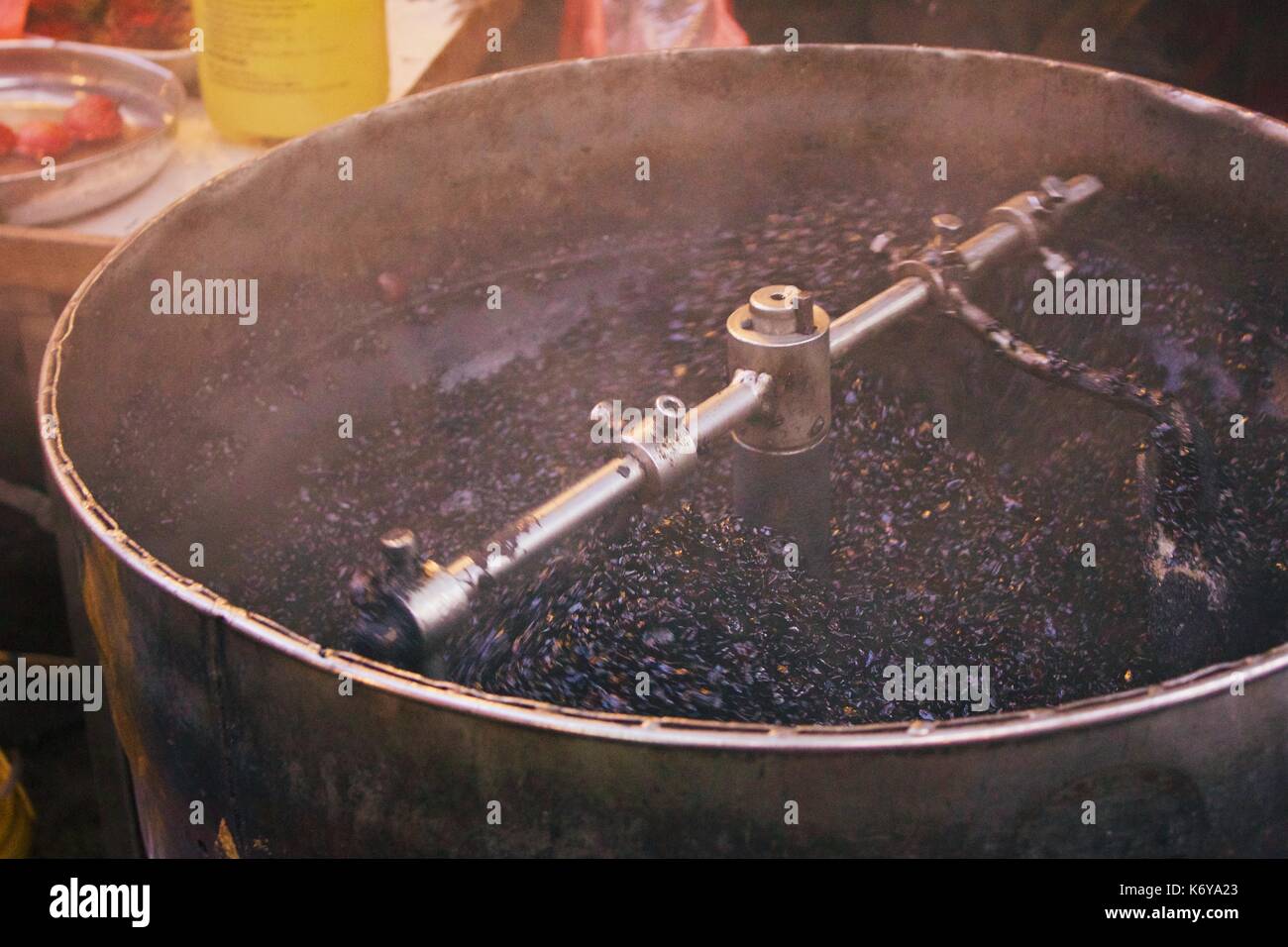Lately, the realm of coffee has transformed into a complex and fascinating landscape, enticing aficionados and occasional consumers alike. The term premium coffee has emerged as a symbol for those seeking quality and unique flavor experiences. With its roots rooted in meticulous cultivation and thoughtful processing, specialty coffees offer a sensory journey that stretches beyond your standard cup. For those wishing to engage themselves in this diverse universe, grasping the refined flavor profiles is essential.
As you delve deeper into the domain of specialty coffee, you will come across a variety of selective offerings, from unprocessed beans to finely ground beans. The variation in flavor can often be traced back to the variety of bean, the degree of roasting, and although you might use crushed coffee or freshly ground coffee. For instance, arabica coffee are celebrated for their sweet, fruity, and floral notes, while robusta coffee offers a more earthy and bitter profile. Knowing how to pick and brew your coffee, whether you favor a intense espresso or a delicate pour-over, can enhance your tasting experience to exciting dimensions.
Grasping Gourmet Coffee
Gourmet coffee is defined by its superior quality and unique flavor characteristics that stem from superior growing conditions, meticulous harvesting, and exact processing. These coffee beans are often harvested from specific regions renowned for their distinct characteristics, such as elevation, weather, and soil quality. Factors like the variety of the coffee plant and the diligent attention given to growing also play a important role in determining gourmet coffees. This devotion to excellence allows coffee lovers to savor a wide range of flavors, from citrusy and fragrant to toasty and cocoa-like.

When investigating gourmet coffee, it is important to recognize the value of recentness. The best coffee beans for preparation are those that have been recently roasted and ideally purchased in intact form. Whole coffee beans retain their essential oils and flavors longer than ground options. Once processed, the exposure to air begins to diminish the beans' aromatic qualities, so newly grinded coffee is preferred for achieving the most intense taste. Specialty roasted coffee highlights this quality, as it is crafted to maintain the unique characteristics of each bean.
Moreover, the brewing methods employed with artisanal coffee can profoundly alter the final cup. For instance, espresso coffee grounds require a precise grind to extract the flavors and oils effectively. The best coffee grounds for espresso often come from high-quality arabica coffee grinds, recognized for their sugariness and depth. Acquiring 1kg coffee beans or 1kg prepped coffee also allows enthusiasts to experiment with different methods of preparation while ensuring uniformity in profile. Understanding the nuances of specialty coffee can raise the coffee drinking experience to greater levels, making it a genuine delight for coffee lovers.
Exploring Flavor Dimensions
Speciality coffee offers a rich range of taste experiences that can entice the palate. Every type of coffee bean has its unique traits shaped by variables such as origin, production process, and roast level. For instance, Arabica coffee beans commonly show lively acidity and fruity notes, while Coffea canephora beans often are fuller-bodied with a powerful essence. Comprehending these profiles is crucial for individuals entering into the world of artisan brews, as it permits for a more enjoyable tasting experience.
When tasting coffee, it's more than about the initial flavor but also the lingering flavor, known as the aftertaste. Various brewing methods can emphasize various aspects of the coffee’s profile. Espresso, for example, extracts intense flavors that may disclose rich undertones of chocolate, brown sugar, or nuts. On the contrary, filter coffee can create a cleaner cup that highlights the coffee’s floral and berry hints. Investigating CoffeeHype can lead to a deeper appreciation for the skill of brewing coffee.
To truly experience the range of flavors that specialty roasted coffee has to provide, one can try different forms such as whole coffee beans and pre-ground coffee. Recently ground coffee amplifies the fragrance and profile, making a notable difference in the overall tasting experience. Regardless of using fine grind or medium to coarse coffee for press pot, every brewing style can reveal new facets of flavor, urging coffee enthusiasts to uncover their individual likes in the expansive world of speciality coffees.
Best Practices for Tasting
When tasting artisan coffee, it’s crucial to start with high-quality whole coffee beans. Make sure that you choose the best whole bean coffee available, ideally sourced from trusted roasters. Milling the coffee right before brewing to maintain its freshness and taste. Experiment with different grind settings to find the best coffee beans for grinding, as the grind can significantly affect the brewing process and, ultimately, the taste in your mug.
While brewing your coffee, pay attention of the aroma released from the coffee beans. Scents can tell a lot about the flavor profile you can anticipate. Employ clean and untainted vessels to reduce any taint that could affect the tasting experience. When evaluating your coffee, take tiny sips and permit the liquid distribute across your tongue to detect specific flavor notes like berry-like, nutty, or chocolatey undertones.
In conclusion, keep notes of your tasting experiences to create a personal flavor profile for individual speciality coffee beans. This will help deepen your appreciation for the subtleties in taste and aroma from various beans and roasters. Over time, you will enhance your ability to discern subtle flavors and choose the best coffee grounds for your taste, making your specialty coffee experience even more fulfilling.
